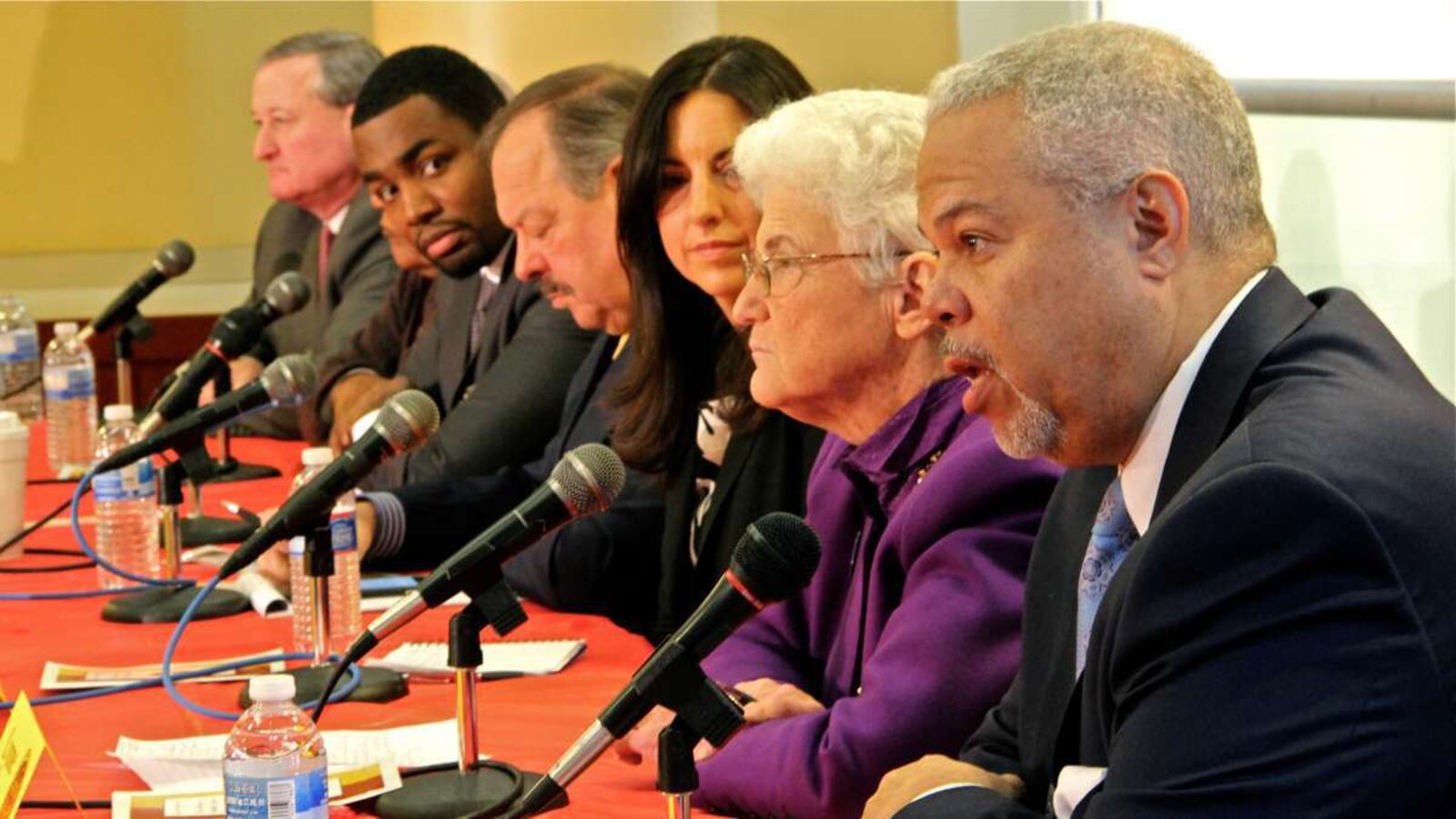This article was originally published in The Notebook. In August 2020, The Notebook became Chalkbeat Philadelphia.
Plenty of tough, wonky, policy-driven questions were lobbed at the Philadelphia mayoral candidates at a forum hosted by students at Central High School on Tuesday.
Among them were carefully worded queries about the city’s unfunded pension liability, City Hall’s perceived pay-to-play political culture, and – especially relevant to the social sciences students who organized the event – the future of Philadelphia public education.
But unlike the multitude of other mayoral forums organized this campaign season, this one also allowed the candidates to shake loose and dish one-word answers on the students’ pet issues.
Things like weed, movies and cheesesteaks.
More on that later. But first, here’s how the candidates responded to the question that most directly pertained to public education.
The panel of Central seniors in charge of pressing the mayoral hopefuls got an up-close view of how candidates often don’t answer questions directly.
Question:
"Public perception is that charter schools can provide a viable alternative to public schools. What specific steps would you take to work with the School Reform Commission to improve public schools?"
Boiled-down candidate answers:
Former Common Pleas Court Judge Nelson Diaz critiqued supporters of vouchers, before calling for the abolition of the SRC.
"We have to make sure that the school system is run by its parents, and that I as the mayor have the total responsibility, and that you hold me accountable," said Diaz.
Melissa Murray Bailey, the lone Republican in the race, said she’s appalled by what she sees as waste within the School District.
"Number-one thing I would do is make sure the money actually gets to the children," said Murray Bailey, who moved to the city three years ago.
Former city District Attorney Lynne Abraham is hopeful that Gov. Wolf will bring increased funding to the city’s schools, and said it was unproductive to squabble about the differences between school sectors.
"The first thing we really need to do is understand that charter schools and public schools are here to stay, and that they have to co-exist and coalesce as one," she said.
State Sen. Anthony Hardy Williams, who is backed in the race by a wealthy trio of school choice advocates, cited his track record sponsoring legislation that has brought additional state resources to city schools.
"The reality is if a public school – a neighborhood school, a magnet school, a charter school – doesn’t work, we should find other alternatives for families in need and fund them to the level that they are actually able to perform," said Williams.
Former City Councilman Jim Kenney, endorsed and supported financially by the city’s largest labor unions, including teachers, also hopes Wolf can maneuver his agenda through the Republican-held state legislature.
"If we get charter reimbursement as Gov. Wolf has proposed, life can get a little more fair as far as the public schools are concerned, and we can live together," he said.
Kenney also said that teachers at charter schools should be held to same certification standards as those in District schools.
Former Philadelphia Gas Works executive Doug Oliver said the SRC should be viewed as a regulator like the Federal Deposit Insurance Corporation or the Public Utility Commission.
"They guarantee certain things. They don’t bother so much with the operation of companies, but rather that they deliver on a basic promise," said Oliver.


